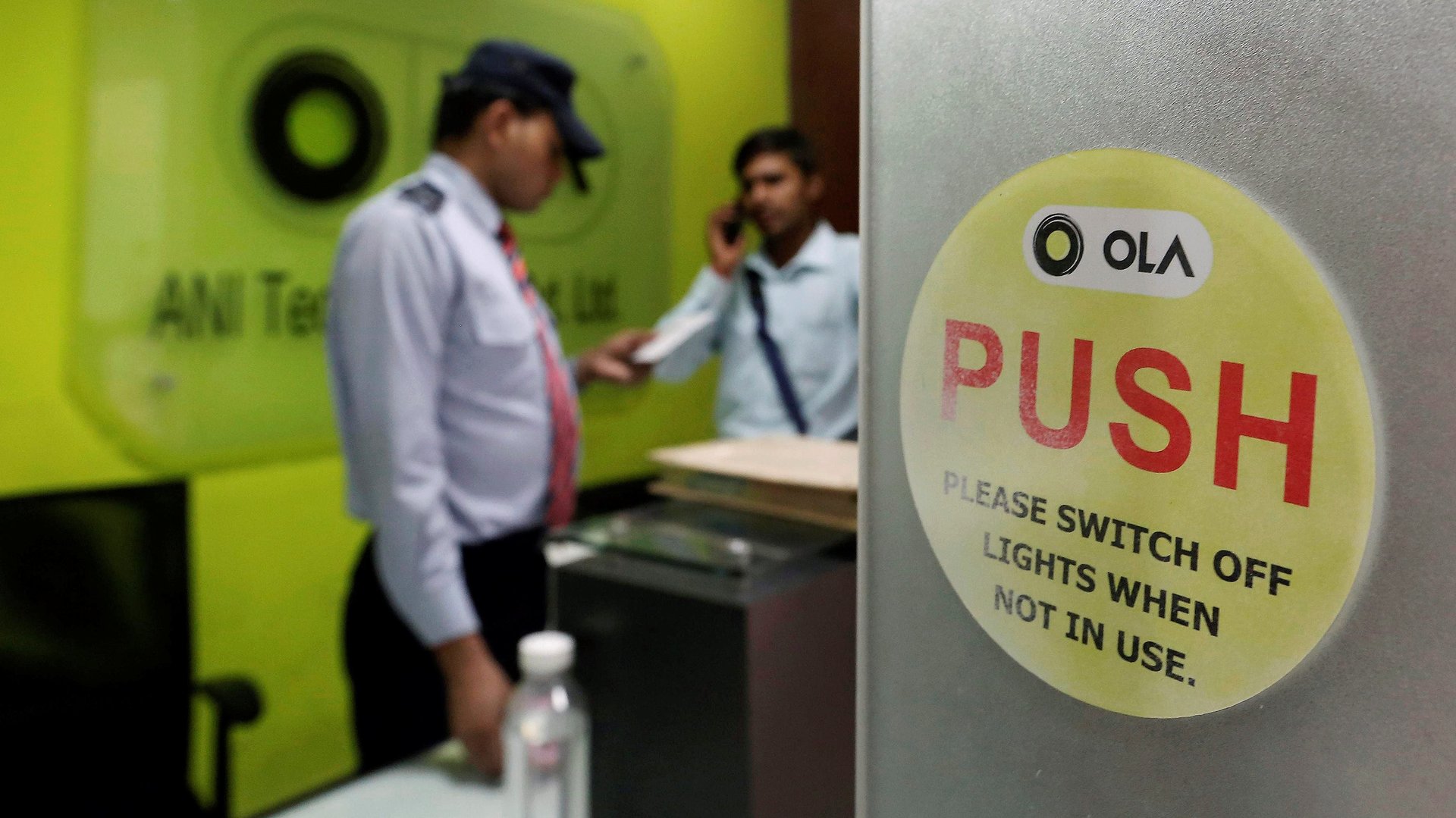More than 3,000 people have lost their jobs at Indian tech unicorns in one week
Coronavirus has spurred a bloodbath in India’s tech startup sector.


Coronavirus has spurred a bloodbath in India’s tech startup sector.
Yesterday (May 20), the country’s largest homegrown ride-hailing unicorn Ola laid off over 1,400 employees following a 95% decline in its revenues during March and April as most parts of India were under complete lockdown to curtail the spread of coronavirus.
“This will be a one-time exercise and will be complete by the end of this week for our India Mobility business and by the end of next week for Ola foods and Ola Financial Services. No more Covid-19-related cuts will be done after this exercise,” CEO Bhavish Aggarwal wrote in an email to staff.
Ola’s decision comes just days after two other tech unicorns laid off staff citing slowdown due to Covid-19.
On May 16, Gurugram-based food delivery firm Zomato said it would lay off 520 employees, reducing its total headcount by 13%. And two days later, Bengaluru-based unicorn Swiggy let go of 1,100 personnel saying that the pandemic had crippled business. For the two food-delivery firms, daily orders dropped by 70% within the first 10 days of the nationwide lockdown that started on March 25.
“The biggest impact here is on the cloud kitchens business, with many unknowns about volumes through the year. Since the onset of Covid-19, we have already begun the process of shutting down our kitchen facilities temporarily or permanently, depending on their outlook and profitability profile,” Swiggy co-founder and CEO Sriharsha Majety told the employees.
Most of these billion-dollar startups have been posting massive losses for years as they continue to invest way more than what they earn. But the lockdown came as a death knell. “Demand has come down and there’s limited cash so companies are trying to preserve the cash in anticipation of running out of money,” said Kris Lakshmikant, founder of executive search firm Head Hunters India. This downsizing echoes the strategies of the dot com crisis of 2001 as well as the 2008 financial crisis, he said.
“These companies hired based on continuous capital raising plans to the extent that they were funding themselves more from an infusion of capital than operating revenue,” explained independent startup sector analyst Harish HV. “Now if you’re not seeing business potential and can’t raise capital, you’ll have to take these tough calls on how you’ll run the business.” Ola and Swiggy are among the most funded startups in the country, having raised $3.8 billion and $1.6 billion, respectively.
Even as most tech startups will see some impact of the coronavirus-triggered slump, it will vary depending on which sectors these young companies focus on. For instance, ventures focused on travel and tourism will suffer serious damage, while those working in the health and wellness may actually find more takers than before. But a lot still depends on when businesses are allowed to return to normal—if at all.
“If easing continues and business slowly picks up, we won’t see more layoffs,” said Harish HV. “If Covid-19 takes another turn and there are more lockdowns and more restrictions, then we will have more problems.”